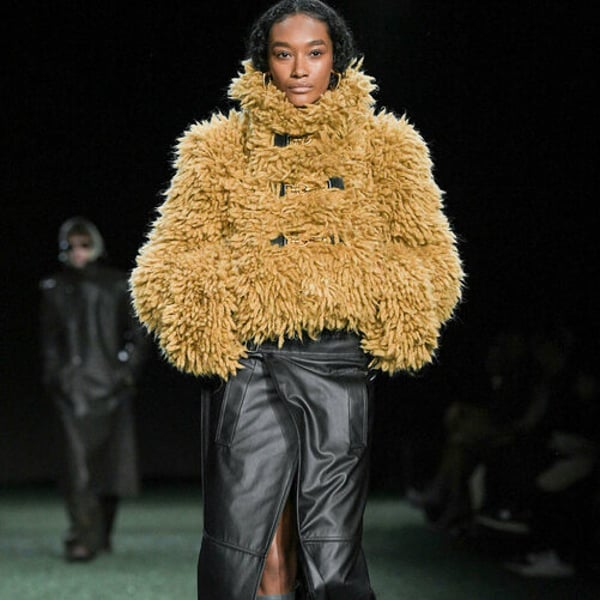By
Reuters
Published
Jul 20, 2024
Burberry‘s new boss Joshua Schulman faces an immediate strategy dilemma. On Monday, the former head of Coach was appointed to replace Jonathan Akeroyd, becoming the fourth CEO of the 2.6 billion pounds ($3.36 billion) British fashion house in 10 years.
Chairman Gerry Murphy vowed on the same day to continue Burberry’s upmarket push to compete with upper tier European luxury labels including Louis Vuitton, Chanel and Dior.
The message disappointed those looking for stronger reassurance the maker of iconic tartan trench coats will be able to reverse years of underperformance, with some expecting Schulman to focus on lower priced products. Shares were trading at 722 pence by 0830 GMT on Friday, down around 19% since before the announcement.
In a call with journalists on Monday, Murphy described the abrupt top management shuffle as part of “a nudge of the tiller and adjustment rather than a fundamental change of strategy.”
The label’s struggles to reignite sales underscore the challenge of building new expectations around historic brands — especially when inflation-hit shoppers are less inclined to browse stores, as seen at larger rival Gucci, owned by the Kering, opens new tab conglomerate.
Burberry is a case in point. Under Marco Gobbetti, who ran the group between 2017 and 2021 and hired designer Riccardo Tisci, the company had started to focus on trying to elevate its products to the top end of luxury fashion, without much financial success, opens new tab.
Outgoing CEO Akeroyd, who took the helm in 2022, pinned a further attempt at Burberry’s turnaround on higher-margin accessories, like the medium-sized Knight leather bag, opens new tab – currently priced at 2,090 pounds ($2,701.12) – launched by designer Daniel Lee last year.
Lee’s edgy designs generated some buzz around the label, but the drive into the higher echelons of luxury has left investors hanging. Underlying sales were down 21% year-on-year in the 13 weeks to end June. Burberry has scrapped its dividend and warned it expects to post an operating loss in the first half of its fiscal year.
Shares in Burberry have halved in value in the past decade while LVMH‘s have meanwhile risen nearly 400%. They have also underperformed Kering’s shares even as the conglomerate’s star brand Gucci struggles.
Murphy said Burberry had gone too fast, too far with new styles, and pledged to focus on the British house classics, adding that shoppers prefer more familiar looks during economic downturns.
Some luxury experts believe the British brand should pursue a different route.
Bernstein analyst Luca Solca said he initially read Schulman’s appointment as an opportunity for the label to draw on his background in American accessible luxury to refocus on more basic, lower-priced items.
The executive, who headed mid-range brand Coach from 2017 to 2020, is credited with relaunching the label’s highly popular Tabby handbag, which sells for as much as $750 and has been a major growth driver.
The U.S. brand increased its global market share to 2.9% from 2.8% in the decade to 2023 while Burberry’s shrunk to 2.4% over the same period, GlobalData figures show.
But after Murphy’s comments on strategy, Solca said: “We tempered our excitement.”
Burberry’s leadership change left many analysts unconvinced Burberry will regain market share soon.
The company said it would redirect marketing to iconic items while seeking to cut costs. But the potential of such new priorities to be transformational “remains unclear,” said Citi analyst Thomas Chauvet, predicting consensus estimates for 2025 earnings before interest and tax (EBIT) of 298 million pounds could be halved.
“I wouldn’t expect any turnaround to be rapid,” said Art Hogan, chief market strategist at wealth management firm B Riley Financial.
© Thomson Reuters 2024 All rights reserved.







